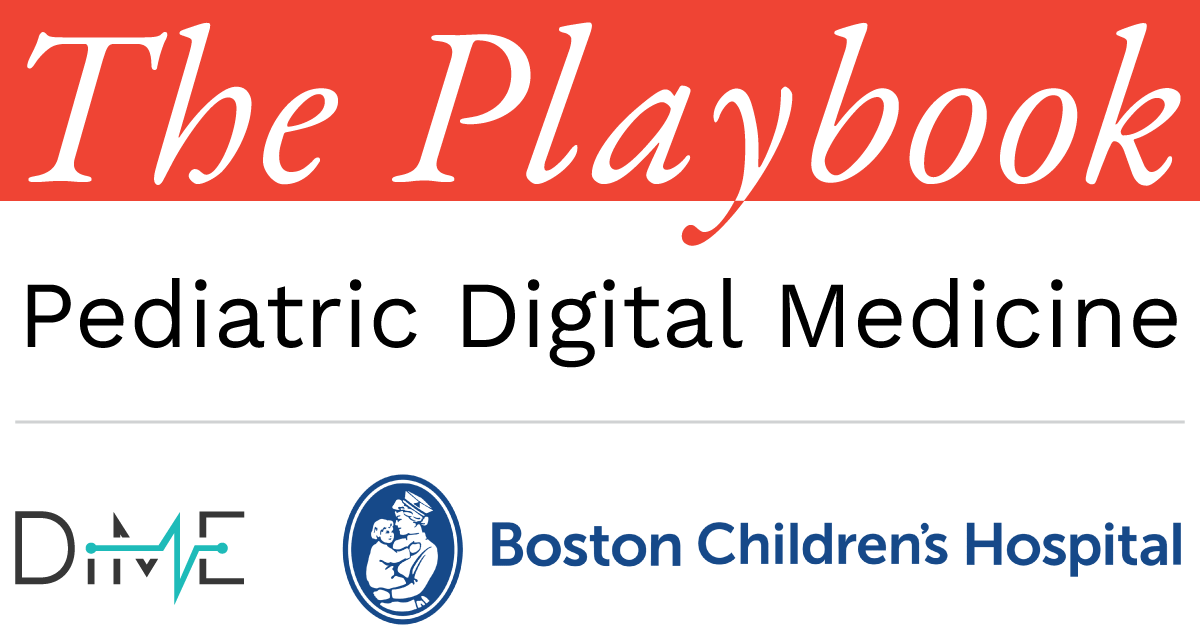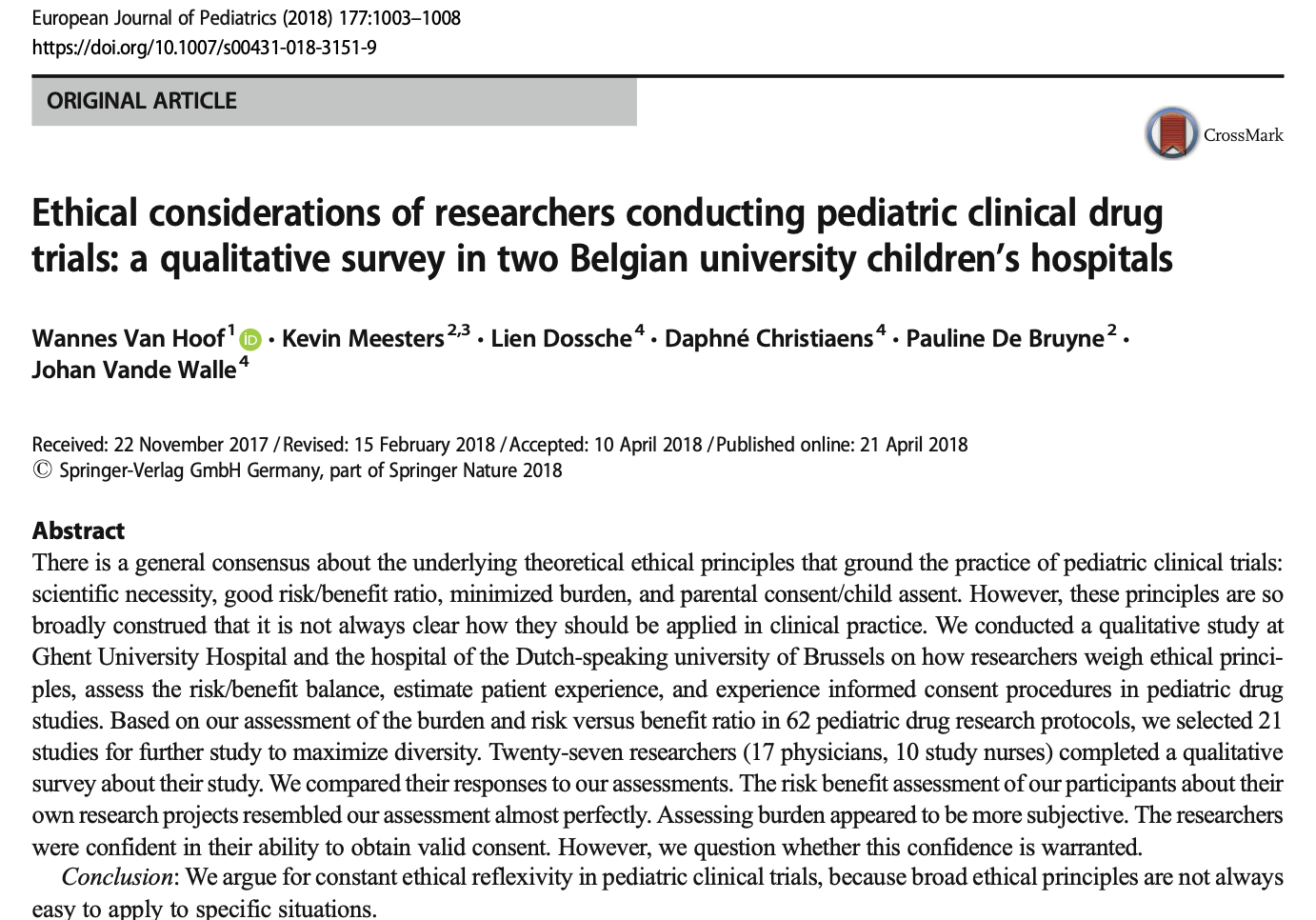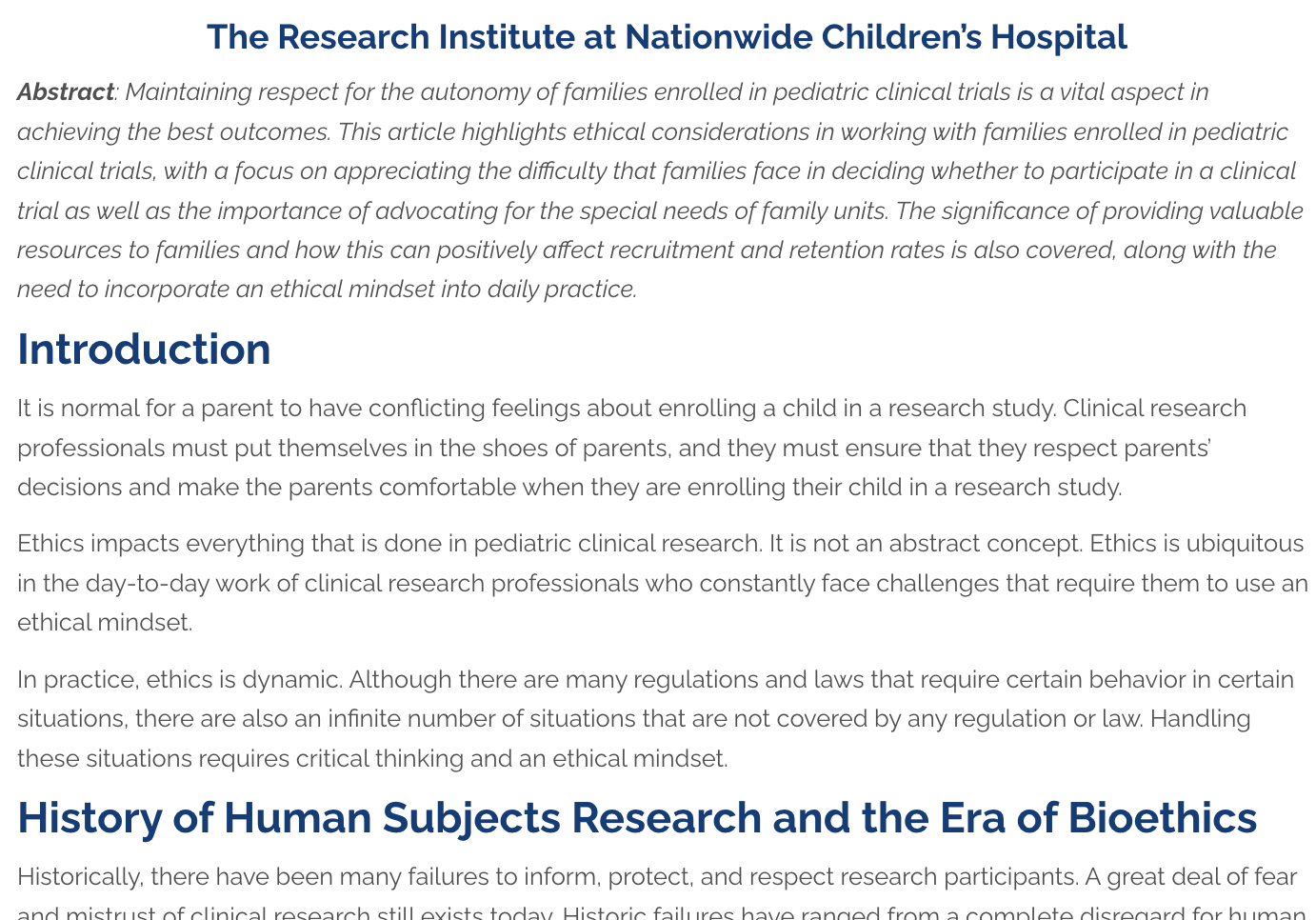
Chapter 4 – Section 2
Recruitment and consent

Recruiting and obtaining the consent of children in clinical trials can be challenging. Use the recommendations in this section to reach more representative populations in clinical research and understand unique considerations for the inclusion of children and their families using digital approaches.
Increasing access through digitally enabled trials
-

Decentralized trials (DCTs) can mitigate geographic barriers, allowing children from rural, underserved, and diverse areas to participate without the need for in-person visits.
-

DCTs can reduce logistical and financial burdens on families by minimizing travel, time off work, and other common barriers to participation.
-

DCTs can enhance racial and ethnic diversity. By broadening access, DCTs also offer a greater opportunity for racially and ethnically diverse populations to participate in research, contributing to more representative data.
Decentralized Study / Trial:
A study that moves some or all of the trial participant interventions and prospective data collection outside of the traditional clinical trial sites and into the real world. These studies may use electronic platforms and data sources, mobile health providers or ship investigational products directly to patients.

Meet Amir
Amir’s participation in a digitally enabled trial has helped overcome some of the geographic and logistical barriers that previously made it difficult for him to take part in research studies. With a decentralized trial, Amir and his family no longer need to travel long distances for in-person visits, making it easier for them to contribute valuable data to the study while reducing the burden of time off work and travel expenses. This digital approach has also made it possible for Amir to be part of a more diverse group of participants, leading to more inclusive and representative research findings.
Personas illustrate key points in action, showcasing real-world applications and practical scenarios based on fictional personas.
Navigating consent, data access, and privacy with children and caregivers

- Age-appropriate consent & assent: Customizing consent processes to match a child’s age and developmental stage is important. Review our table to understand how consent and assent processes change as children and their caregiving systems grow and evolve.
- Life-stage transitions: As children transition to adolescents and then young adults, the ownership and control of their data should transition as well. Design flexible strategies to manage transitions in data ownership and decision-making.
- Data access: Managing who can access the data and under what conditions is crucial. As children grow, their control over who sees their data and how it is used should increase, reflecting their developing autonomy.
- Implementing dynamic consent processes allows for the ongoing adjustment of consent as the child matures.
- Develop data sharing plans so children and caregivers can view the results of their participation at the end of a trial.
- Keeping patients and caregivers informed: Consider providing updates to patients and their caregivers about how you are using the data, or to share results of the trial back to them. Keeping them informed of the outcomes provides peace of mind and a stronger sense of inclusion in the research.

Meet Parker
Personas illustrate key points in action, showcasing real-world applications and practical scenarios based on fictional personas.
Electronic consent empowers families

- Digital consent platforms: Digital platforms offer innovative ways to present complex consent information using multimedia, which enhances understanding and engagement for both parents and children.
- Accessibility: e-Consent platforms deliver trial information through videos, quizzes, and interactive elements, making complex details accessible to children and caregivers.
- Comprehension: Using multimedia, such as visuals and voiceovers, ensures that all participants, regardless of literacy level or language, can fully understand the trial process. Some platforms translate materials into multiple languages and offer voiceovers for families with diverse backgrounds.

Meet Maya
Maya’s parents use a digital consent platform for her clinical trial that presents complex information through interactive videos and quizzes, ensuring that they can both easily understand the trial process.. The platform’s use of visuals and voiceovers in their native language helps bridge any literacy or language barriers, empowering Maya’s family to make informed decisions with confidence while feeling fully engaged in her care journey.
Personas illustrate key points in action, showcasing real-world applications and practical scenarios based on fictional personas.
Regulatory guidelines to follow
HIPAA (Health Insurance Portability and Accountability Act):
HIPAA mandates strict standards for the protection of personal health information, which are particularly critical in pediatric trials involving sensitive data from DHTs.
- Digital platforms used in trials must comply with HIPAA regulations to protect patient privacy.
COPPA (Children’s Online Privacy Protection Act):
COPPA mandates how online data is collected from children under 13, protecting their privacy during DHT-enabled clinical trials. Compliance ensures that children’s data is handled ethically.
- Consent must be obtained from parents or guardians before collecting personal information from children under 13.
FDA’s guidance on digital health technologies (DHTs):
The FDA has issued guidance for the use of DHTs in clinical trials, emphasizing data accuracy, security, and patient privacy, particularly for pediatric populations.
- Ensure the DHTs used in trials meet the FDA’s standards for clinical investigations.
21 CFR Part 50 (Informed Consent for Children):
The U.S. Code of Federal Regulations outlines special protections for children involved in clinical investigations, requiring parental permission and child assent in appropriate circumstances.
- Proper processes for obtaining child assent and managing parental permission must be followed in U.S.-based trials.
Health Insurance Portability and Accountability Act (HIPAA):
An Act of Congress that outlines the lawful use and disclosure of protected health information (PHI) in the United States. HIPAA compliance is regulated by the Department of Health and Human Services (HHS) and enforced by the Office for Civil Rights (OCR).
Children’s Online Privacy Protection Act (COPPA):
A law that protects the online information of children under 13 years old. It applies to operators of websites and online services that target children, and requires them to obtain parental consent before collecting personal information from children. COPPA was designed to safeguard young people from potential abuse and privacy violations because children cannot legally consent to the use of their data.
Digital Health Technologies:
Electronic tools, systems, devices and resources that generate, store and process data in health care and research, which may include mobile health, wearable devices, telehealth, telemedicine, electronic health records, and patient portals.
21 Code of Federal Regulations (CFR) Part 50:
Outlines FDA regulations for the protection of human subjects in clinical investigations, including requirements for informed consent. Subpart D sets forth additional safeguards to protect children involved in clinical investigations, ensuring that the risks are minimized, the benefits justify the research, and appropriate parental or guardian consent is obtained.
Assent:
A child’s affirmative agreement to participate in a clinical investigation. Assent must be sought in addition to the consent of a legally authorized representative or surrogate when the individual is sufficiently cognitively capable of understanding the nature of his or her participation in a research study.

Key insights
Considerations for pediatric clinical trial diversity
Pediatric clinical trials must balance scientific rigor with ethical recruitment and consent processes that prioritize safety, inclusivity, and family engagement. Some industry best practices include:
- Inclusive recruitment: Effective outreach should engage diverse pediatric populations, minimize logistical burdens, and address family concerns early (JAMA Network Open).
- Ethical safeguards: Study designs must ensure age-appropriate dosing, monitoring, and procedural considerations to protect child participants (Springer Nature).
- Consent and assent: Informed consent should support caregivers while respecting children’s evolving autonomy, with assent processes tailored to developmental stages (FDA.gov).
Embedding these principles fosters trust, ethical integrity, and broader participation in pediatric research.
Social Determinants of Health and Informed Consent Comprehension for Pediatric Cancer Clinical Trials

Ethical considerations of researchers conducting pediatric clinical drug trials: a qualitative survey in two Belgian university children’s hospitals











